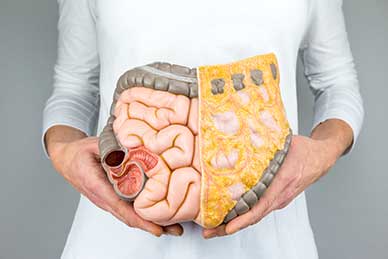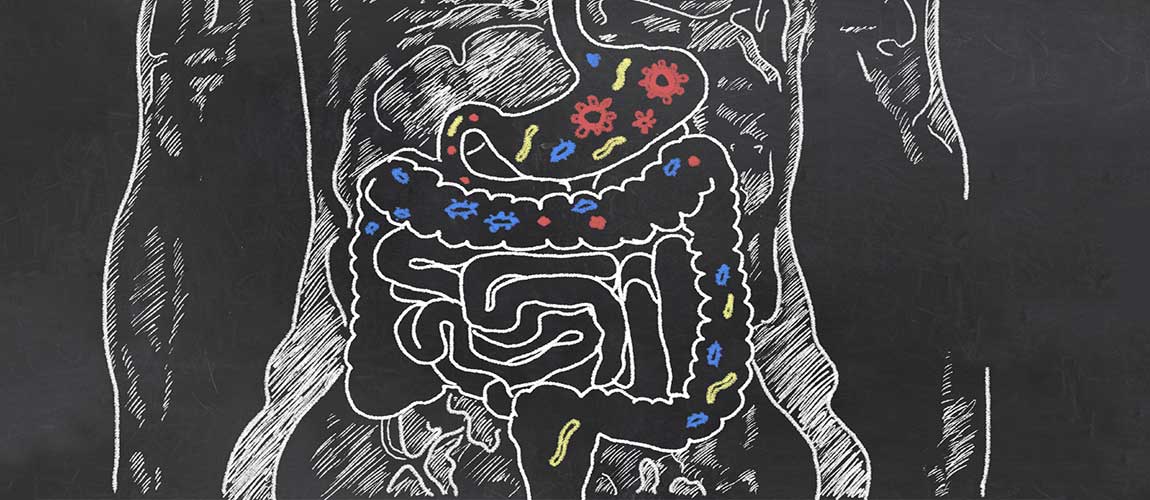New Findings Suggest Gut Microbiome Influences Gene Expression
Gut microbes have been all over the news lately. The flora that live in your gastrointestinal tract, also known as your microbiome, have recently been proven to affect your overall health in a variety of previously unknown ways. New studies show that they may have an even bigger effect than we previously realized, controlling our entire bodies—even down to our DNA.
What is Your Microbiome?
Our microbiome is made up of the thousands of different strains of bacteria and fungi that live in our GI tracts. These bacteria are necessary for a variety of different functions in the human body. They help digest our food and are essential for converting this food to vitamins we need to survive. In addition, our microbiome contributes to immunity in a variety of ways, most markedly by crowding out bad bacteria so they cannot survive. This is the reason that people are more likely to catch serious infections such as clostridium difficile after taking antibiotics that reduce the numbers of healthy bacteria in their gut.
While researchers once believed that the benefits of gut microbes were mainly restricted to the digestive tract, we now know that this is not the case. Your microbiome affects your mental health, your immunity to disease and may even have an effect on whether and when certain genes are expressed.
Gut Microbes, Gene Expression and Your Diet
 You have probably heard the word "genome," which refers to your DNA and the information contained within it. These genes are turned on and off according to our needs, producing the right proteins at the right time for survival by your epigenome. The epigenome is made up of millions of different kinds of molecules that govern gene expression. According to recent research, gut microbes impact us at this very fundamental level by producing molecules that have epigenetic effects on diverse tissue throughout the body, including adipose tissue and the liver.
You have probably heard the word "genome," which refers to your DNA and the information contained within it. These genes are turned on and off according to our needs, producing the right proteins at the right time for survival by your epigenome. The epigenome is made up of millions of different kinds of molecules that govern gene expression. According to recent research, gut microbes impact us at this very fundamental level by producing molecules that have epigenetic effects on diverse tissue throughout the body, including adipose tissue and the liver.
Feeding the "good" gut microbes that have these beneficial effects is an important part of staying healthy. These microbes live most happily on high fiber foods full of micronutrients. However, this is not what many modern people in the West eat. Our dietary choices may be affecting more than just our ever expanding waistlines.
The Problem with the Western Diet
Experimental mice were kept in a germ-free environment and fed a diet similar to that which we call a Western diet, one high in red meats, saturated fats, refined starches and simple sugars. Another group of mice was kept in a similarly germ-free environment and fed a healthier diet of fruits and vegetables, which are full of the micronutrients and fiber that gut flora need to flourish. The group with the healthier diet developed a much more diverse microbiome despite being exposed to no bacteria in their environment. These gut microbes produced different metabolites, which in turn affected gene expression.
Fats and sugars move quickly through our gastrointestinal systems and do not have the nutrients that gut microbes need to survive. This leads to a microbiome that may survive, but does not flourish and grow the diverse range of flora that we need for ideal health. In this way, what we eat can affect our health in a variety of ways that we could never have foreseen.
Helping Your Intestinal Flora to Flourish
If you are interested in helping your community of gut microbes along, there are several things you can do. Luckily, these are all healthy decisions in general. Eat plenty of foods rich in fiber, especially fruits and vegetables that have the vitamins that both you and your microbiome need to flourish. Avoid simple sugars and saturated fats, which are empty calories that offer few actual nutrients. Eat yogurt or other fermented foods that have high amounts of healthy bacteria to colonize your GI tract. If you do not like yogurt, consider taking a probiotic supplement. Last, avoid antibiotics except where absolutely necessary. Unfortunately, the good bacteria in your body as just as susceptible to these drugs as the germs that cause disease.
There are already plenty of good reasons to eat a healthy diet full of vitamins, fiber, and plant foods. However, it appears that what you eat may affect your health in more ways than doctors and scientists previously could have realized.




